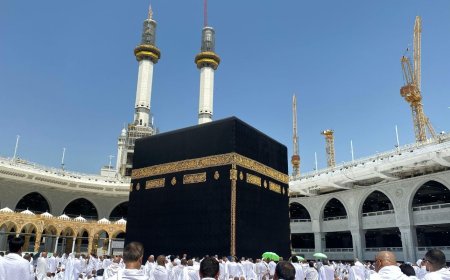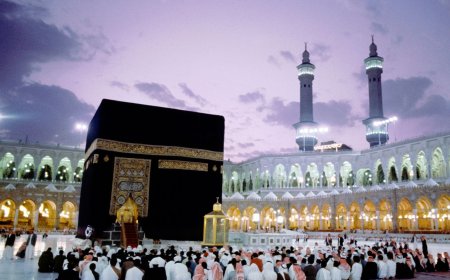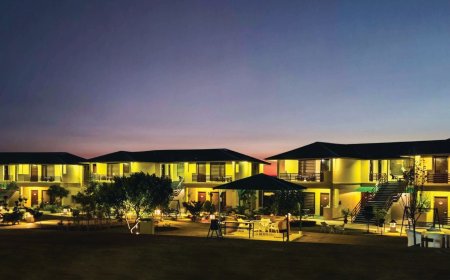Top 10 Washington Spots for Live Theatre
Top 10 Washington Spots for Live Theatre You Can Trust Washington, D.C. is a cultural powerhouse, home to some of the most respected and enduring live theatre institutions in the United States. From historic venues steeped in tradition to avant-garde spaces pushing creative boundaries, the nation’s capital offers a rich tapestry of performance experiences. But in a city teeming with options, how d
Top 10 Washington Spots for Live Theatre You Can Trust
Washington, D.C. is a cultural powerhouse, home to some of the most respected and enduring live theatre institutions in the United States. From historic venues steeped in tradition to avant-garde spaces pushing creative boundaries, the nation’s capital offers a rich tapestry of performance experiences. But in a city teeming with options, how do you know which theatres deliver consistent excellence, artistic integrity, and unforgettable storytelling? This guide identifies the top 10 Washington spots for live theatre you can trust—venues with proven track records, critical acclaim, community respect, and a commitment to quality that transcends trends.
Why Trust Matters
In the world of live theatre, trust is not a luxury—it’s a necessity. Unlike streaming services or recorded performances, live theatre is an ephemeral experience. You invest your time, your money, and your emotional energy into a single evening that will never be replicated. When you choose a theatre, you’re placing faith in its ability to deliver a compelling narrative, skilled performances, thoughtful direction, and a professional production environment.
Trust is earned through consistency. A theatre that produces high-quality work year after year, nurtures emerging talent, engages its audience with transparency, and maintains artistic standards even under financial pressure becomes a reliable cultural anchor. In Washington, where political discourse often dominates the cultural conversation, the most trusted theatres stand apart by prioritizing human stories over headlines.
These institutions are not merely performance spaces—they are community builders. They host post-show discussions, offer educational programs, collaborate with local artists, and champion diverse voices. Their reputations are built on decades of service, critical recognition, and audience loyalty. When you choose a trusted theatre, you’re not just seeing a play—you’re participating in a living tradition of artistic excellence.
This list is curated based on multiple criteria: longevity of operation, critical reception from national and local reviewers, audience retention rates, award recognition, diversity of programming, and institutional stability. We’ve excluded venues with recent scandals, inconsistent quality, or declining attendance. What remains are the 10 Washington theatres that have earned the right to be called trustworthy.
Top 10 Washington Spots for Live Theatre You Can Trust
1. The Shakespeare Theatre Company
Founded in 1986 and based in the historic Sidney Harman Hall and the Michael R. Klein Theatre, The Shakespeare Theatre Company is widely regarded as the premier classical theatre in the United States. Under the leadership of Artistic Director Simon Godwin and Managing Director Kathleen C. Breen Combes, the company has elevated the presentation of Shakespeare, Molière, and other canonical playwrights with modern clarity and emotional depth.
Its productions consistently receive Tony Award nominations, Helen Hayes Awards, and glowing reviews from The New York Times, The Washington Post, and The Atlantic. The company’s commitment to accessibility—through affordable ticket programs, educational outreach, and inclusive casting—has strengthened its reputation as both an artistic leader and a community partner.
Notable productions include a critically acclaimed “Hamlet” with a gender-fluid lead, a bold “Taming of the Shrew” set in 1950s America, and a haunting “King Lear” featuring a deaf actor performing in American Sign Language. The Shakespeare Theatre Company doesn’t just perform the classics—it reimagines them for contemporary audiences without sacrificing their integrity.
2. Arena Stage
Arena Stage, established in 1950, holds the distinction of being the first regional theatre in the United States to receive a Tony Award for Outstanding Regional Theatre. Located in the vibrant Southwest Waterfront, its three-performance spaces—Kreeger Theater, Fichandler Stage, and Mead Center for American Theater—host a dynamic mix of American plays, world premieres, and socially engaged works.
Arena Stage has launched the careers of countless American playwrights, including August Wilson, whose “Fences” and “The Piano Lesson” were developed here before moving to Broadway. The theatre’s commitment to American voices is unwavering, with over 70% of its seasons featuring new or adapted American works.
Its programming reflects the diversity of the nation’s capital, often tackling themes of race, class, immigration, and identity with nuance and courage. Arena Stage’s “American Voices New Play Institute” has become a national model for nurturing emerging dramatists. Audiences return season after season not only for the quality of the productions but for the theatre’s consistent ethical stance and transparent artistic vision.
3. Woolly Mammoth Theatre Company
Woolly Mammoth, founded in 1980, has built a national reputation as a laboratory for bold, provocative, and intellectually rigorous new theatre. Known for its commitment to contemporary voices, the company specializes in plays that challenge assumptions, unsettle comfort zones, and spark urgent conversations.
Its productions have earned multiple Helen Hayes Awards and have been recognized by the American Theatre Wing and the Doris Duke Charitable Foundation. Woolly Mammoth’s season often includes world premieres, experimental formats, and collaborations with visual artists, musicians, and technologists.
Notable works include “The Niceties” by Eleanor Burgess, “The Flick” by Annie Baker, and “The Wolves” by Sarah DeLappe—all of which originated or gained national attention through Woolly’s stages. The theatre’s leadership, under Artistic Director Maria Manuela Goyanes and Managing Director Susan S. W. Lee, prioritizes equity, inclusion, and artist development, making it a beacon for progressive theatre in the region.
Woolly Mammoth’s audience is known for its intellectual curiosity and willingness to engage with discomfort. It’s not for everyone—but for those seeking theatre that dares to ask hard questions, it’s among the most trustworthy institutions in the country.
4. Round House Theatre
Located in Bethesda, Maryland, just outside Washington, D.C., Round House Theatre has become one of the most respected regional theatres in the Mid-Atlantic. Since its founding in 1978, it has grown from a small storefront space to a state-of-the-art 300-seat venue with a national reputation for excellence.
Round House is known for its eclectic season, blending classic works with contemporary dramas, musical theatre, and adaptations of literature. The company has a particular strength in producing works by women and playwrights of color, with over half of its recent seasons featuring female or non-binary playwrights.
Its production of “The Humans” by Stephen Karam received widespread acclaim and helped launch the play’s journey to Broadway. Round House also excels in musical theatre, with innovative stagings of “Spring Awakening” and “Fun Home” that have drawn audiences from across the region.
What sets Round House apart is its deep community engagement. The theatre offers free performances in underserved neighborhoods, hosts post-show dialogues with local leaders, and maintains a robust youth education program. Its consistency in quality, combined with its ethical commitment to accessibility, makes it a trusted cultural institution.
5. Studio Theatre
Founded in 1978, Studio Theatre has carved out a distinctive niche as Washington’s most intimate and artistically fearless venue. With three performance spaces—The Mead Theatre, The Wunderbar, and The Studio Theatre—Studio offers a range of experiences from raw, one-act dramas to immersive, site-specific performances.
Studio is renowned for its commitment to new American plays and its willingness to take risks on untested voices. Over the years, it has premiered works by playwrights such as Branden Jacobs-Jenkins, Quiara Alegría Hudes, and Jackie Sibblies Drury—all of whom later achieved national acclaim.
Its “Studio 2ndStage” program specifically supports emerging artists and experimental works, often featuring solo performances, multimedia installations, and non-traditional storytelling. Studio’s audiences are known for their loyalty and intellectual engagement, drawn by the theatre’s reputation for authenticity and emotional honesty.
Studio Theatre’s leadership has maintained a steady artistic vision for over four decades, even through economic downturns and shifting cultural landscapes. Its consistent output of high-caliber, thought-provoking work has earned it a place among the most trusted theatres in the nation.
6. Ford’s Theatre
Ford’s Theatre is not only a historic landmark—the site of President Abraham Lincoln’s assassination—but also a thriving, active theatre company producing high-quality productions year-round. Since reopening as a working theatre in 1968, Ford’s has balanced its historical legacy with a bold contemporary mission: to present American stories that resonate across generations.
Its season includes classic American plays, musicals, and new works exploring the nation’s complex history. Productions like “The People’s Temple,” “The Immigrant,” and “The Crucible” have been lauded for their historical accuracy and emotional power.
Ford’s also operates the Center for Education and Leadership, which offers extensive programming for students and educators, including curriculum-based workshops and teacher training. Its commitment to historical integrity, combined with its dedication to artistic excellence, makes it a uniquely trustworthy institution.
Unlike many historic theatres that rely on nostalgia, Ford’s uses its past as a springboard for meaningful dialogue. It doesn’t shy away from difficult topics—slavery, civil rights, political violence—but presents them with care, context, and compassion. For audiences seeking theatre that is both culturally significant and artistically compelling, Ford’s is a non-negotiable choice.
7. The National Theatre
As one of the oldest continuously operating theatres in the United States, The National Theatre (opened in 1835) is a Washington institution. Located on Pennsylvania Avenue, it has hosted everything from vaudeville acts to Broadway touring productions, and today it serves as a premier venue for large-scale musicals and touring plays.
While it doesn’t produce its own shows, The National Theatre carefully curates its season to ensure only the highest-quality touring productions grace its stage. Each show is selected based on artistic merit, technical excellence, and audience appeal. Recent seasons have featured Tony Award-winning musicals like “Hadestown,” “Dear Evan Hansen,” and “The Band’s Visit,” as well as critically acclaimed plays such as “The Inheritance” and “A Strange Loop.”
Its reputation for reliability is unmatched. Patrons know that when they buy a ticket to The National, they’re getting a professionally mounted, technically flawless production from one of the nation’s top touring companies. The theatre’s staff, ushers, and maintenance team are known for their professionalism and attention to detail.
The National Theatre’s trustworthiness lies in its consistency: no gimmicks, no compromises, just world-class performances in a beautifully preserved historic space. For audiences seeking a polished, high-energy evening of theatre without the risk of uneven quality, it’s a dependable choice.
8. Keegan Theatre
Founded in 1996, Keegan Theatre has grown from a small company performing in a church basement to a respected regional powerhouse with a loyal following. Located in the Dupont Circle neighborhood, Keegan is known for its intimate, emotionally resonant productions and its unwavering commitment to storytelling over spectacle.
Its season typically features a mix of contemporary dramas, modern classics, and lesser-known gems. Recent highlights include “The Laramie Project,” “The Glass Menagerie,” and “The Fortress of Solitude”—each staged with remarkable emotional precision and minimal set design that puts the actors and text front and center.
Keegan’s artistic director, Mark A. Rhea, has cultivated a company of actors and designers who return season after season, creating a cohesive artistic voice that audiences recognize and trust. The theatre’s “Keegan in the Round” series offers an immersive experience, with audiences seated on all sides of the performance space, deepening the connection between performer and spectator.
Keegan is also known for its community outreach, offering discounted tickets to educators, students, and low-income patrons. Its consistent quality, heartfelt performances, and ethical business practices have made it a beloved fixture in Washington’s theatre landscape.
9. Theater J
Located in the Washington Hebrew Congregation’s Edlavitch Jewish Community Center, Theater J is the leading venue in the nation for Jewish-themed theatre and the exploration of Jewish identity through performance. Founded in 1990, it has become a vital cultural institution not only for the Jewish community but for all audiences seeking thoughtful, complex storytelling.
Theatre J’s season features works by Jewish playwrights from around the world, as well as productions that examine universal themes through a Jewish lens: memory, survival, assimilation, faith, and justice. Notable productions include “The Golem of Havana,” “The Diary of Anne Frank,” and “The Band’s Visit” (in its early development stage).
What makes Theater J uniquely trustworthy is its intellectual rigor and cultural sensitivity. Its productions are often accompanied by scholarly panels, historical context guides, and interfaith dialogues. The theatre doesn’t shy away from controversy—it invites it, with the goal of fostering understanding rather than division.
Its leadership, under Artistic Director Ari Roth, has championed voices from across the Jewish diaspora and has been a vocal advocate for free expression in the arts. Theater J’s commitment to authenticity, education, and community dialogue makes it a pillar of Washington’s cultural life.
10. Constellation Theatre Company
Constellation Theatre Company, founded in 2008, is Washington’s most inventive and visually stunning theatre ensemble. Known for its bold directorial choices, original music, and immersive design, Constellation reimagines classic and contemporary texts with a theatricality that borders on the magical.
Its productions often blend puppetry, dance, live music, and multimedia to create experiences that defy conventional boundaries. Recent seasons have included a surreal “Alice in Wonderland,” a jazz-infused “The Tempest,” and a haunting “The Little Mermaid” that redefined the fairy tale for adult audiences.
Constellation’s artistic director, Allison Arkell Stockman, and managing director, Amanda Zieve, have built a company that thrives on creativity and risk-taking. Yet, despite its experimental nature, Constellation has never sacrificed technical excellence or narrative clarity. Every element of its productions—from costume to lighting to sound—is meticulously crafted.
Its audience is diverse, adventurous, and deeply loyal. Constellation has earned multiple Helen Hayes Awards and consistently sells out its small venue, a testament to its ability to deliver unforgettable, high-quality theatre on a modest budget. In a city where spectacle often overshadows substance, Constellation proves that innovation and integrity can coexist.
Comparison Table
| Theatre | Founded | Primary Focus | Production Type | Notable Strength | Community Engagement |
|---|---|---|---|---|---|
| The Shakespeare Theatre Company | 1986 | Classical Theatre | Classic Revivals, New Adaptations | Artistic Precision, Casting Excellence | Education Programs, Accessible Pricing |
| Arena Stage | 1950 | American Plays | World Premieres, New Works | Playwright Development, National Influence | Artist Residencies, Youth Outreach |
| Woolly Mammoth Theatre Company | 1980 | Contemporary & Experimental | New Plays, Avant-Garde | Provocative Storytelling, Risk-Taking | Post-Show Dialogues, Equity Initiatives |
| Round House Theatre | 1978 | Regional American Theatre | Classic & Contemporary, Musicals | Consistent Quality, Diverse Programming | Free Community Performances, Education |
| Studio Theatre | 1978 | New American Plays | Intimate, Experimental, Solo Works | Artist Development, Raw Emotional Power | 2ndStage Program, Student Discounts |
| Ford’s Theatre | 1863 (reopened 1968) | American History & Storytelling | Historical Dramas, Musicals | Historical Integrity, Educational Depth | Center for Education & Leadership |
| The National Theatre | 1835 | Broadway Touring | Major Touring Productions | Technical Excellence, Reliability | Accessibility Initiatives, Historic Preservation |
| Keegan Theatre | 1996 | Intimate Dramas | Modern Classics, New Works | Emotional Depth, Ensemble Cohesion | Discounted Tickets, Local Partnerships |
| Theater J | 1990 | Jewish Identity & Culture | Thematic Plays, International Voices | Cultural Nuance, Intellectual Rigor | Interfaith Dialogues, Scholarly Panels |
| Constellation Theatre Company | 2008 | Immersive & Visual Theatre | Reimagined Classics, Original Musicals | Innovative Design, Theatrical Magic | Workshops, Youth Performances |
FAQs
What makes a theatre “trustworthy” in Washington, D.C.?
A trustworthy theatre in Washington, D.C. consistently delivers high-quality productions, demonstrates artistic integrity, engages its community ethically, and maintains financial and operational stability. Trust is built over time through reliable programming, transparent leadership, and a commitment to diversity and accessibility—not through marketing hype or celebrity names.
Are these theatres affordable?
Yes. While ticket prices vary, all 10 theatres on this list offer affordable options such as rush tickets, student discounts, pay-what-you-can nights, and subscription packages. Many also provide free or low-cost community performances and educational outreach programs.
Do these theatres produce original work or only stage classics?
Most of these theatres do both. Arena Stage, Woolly Mammoth, and Studio Theatre are leaders in commissioning and producing new plays. The Shakespeare Theatre Company and Ford’s Theatre focus more on classics but often create innovative adaptations. Constellation and Round House blend both with equal mastery.
Can I visit these theatres without a subscription?
Absolutely. All theatres welcome single-ticket buyers. While subscriptions offer savings and priority seating, no theatre requires them. Many offer flexible ticketing, including last-minute deals and group rates.
Are these venues accessible to people with disabilities?
Yes. All 10 theatres are ADA-compliant and offer services such as audio description, sign language interpretation, sensory-friendly performances, and wheelchair-accessible seating. Most provide advance notice options for accommodations—check their websites for details.
How do I know if a production is worth seeing?
Each theatre on this list has a reputation for quality, so any production you choose is likely to be well-crafted. Read reviews from The Washington Post, DC Theatre Scene, or BroadwayWorld, and consider the playwright or director’s track record. Trust is built on consistency—you can rely on these institutions to deliver excellence.
Are there opportunities to meet the artists after shows?
Many of these theatres host post-show discussions, talkbacks, and receptions with actors, directors, and designers. Woolly Mammoth, Arena Stage, and Theater J are particularly known for these interactive experiences. Check the event calendar for each production.
Do these theatres support local artists?
Yes. All 10 prioritize hiring local actors, designers, stage managers, and technicians. Many have resident artist programs, apprenticeships, and partnerships with local universities. Their success is deeply tied to the talent and dedication of the Washington, D.C. metropolitan arts community.
Is it worth traveling from outside D.C. to see a show?
Definitely. Round House Theatre in Bethesda and Keegan Theatre in Dupont Circle are easily accessible by car or Metro. The National Theatre, Arena Stage, and The Shakespeare Theatre Company are centrally located and well-connected by public transit. For theatre lovers, Washington’s offerings rival those of New York and Chicago—and with far less congestion.
What’s the best way to stay updated on upcoming shows?
Subscribe to each theatre’s email newsletter, follow them on social media, or bookmark their websites. Many also offer digital playbills, behind-the-scenes videos, and artist interviews that deepen your connection to the work.
Conclusion
Washington, D.C. is more than a political capital—it is a cultural beacon where live theatre thrives with passion, intelligence, and integrity. The 10 theatres profiled here have earned their place not through flashy advertising or celebrity endorsements, but through decades of unwavering commitment to artistic excellence and community trust.
Each venue offers something unique: the grandeur of The Shakespeare Theatre Company, the boldness of Woolly Mammoth, the historical weight of Ford’s Theatre, the intimacy of Keegan, the innovation of Constellation, and the cultural depth of Theater J. Together, they form a mosaic of storytelling that reflects the complexity, beauty, and resilience of the human experience.
When you choose to attend a performance at any of these institutions, you’re not just buying a ticket—you’re investing in a tradition of courage, creativity, and connection. These theatres have weathered economic storms, cultural shifts, and global crises, yet they continue to light up their stages with the same dedication that first brought them to life.
Let this list be your guide. Attend with an open heart. Stay curious. Support the arts—not just as spectators, but as participants in a living, breathing cultural legacy. In Washington, the stage is always alive. And with these 10 trusted theatres, you’ll never be left wondering whether the story you’re about to see is worth your time.





























